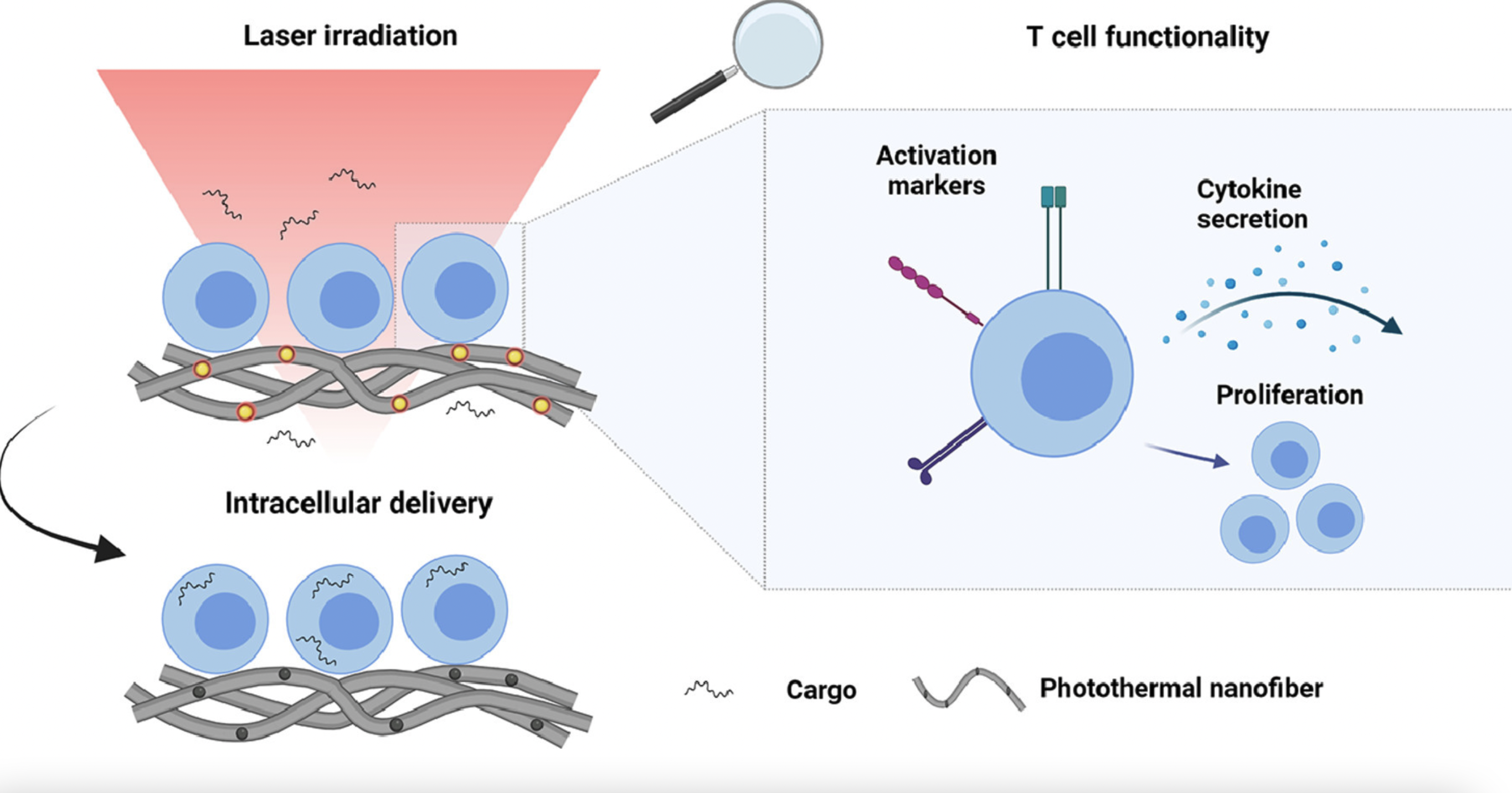Menu

In the pursuit of refining adoptive T cell transfer, a critical facet of cell therapies, a recent study Ghent University delves into the application of Photothermal Electrospun Nanofibers (PEN) for intracellular delivery. This technique has proven efficient for activated T cells and now presents a promising avenue for unstimulated T cells.
Key Findings: A Glimpse into the Future of T-Cell Modification.
Safety Assurance: Inductively coupled plasma tandem mass spectrometry confirms no significant iron release from PEN substrates at laser fluences up to 0.36 J/cm².
High Delivery Efficiency: Successful intracellular delivery of 150 kDa FITC-dextran attains a notable 55–60% efficiency in resting and pre-activated lymphocytes.
Minimal Impact on T Cell Properties: Rigorous analysis indicates no discernible effects on cell proliferation, activation propensity, and extracellular cytokine release.
Towards Genetic Modification: With these compelling outcomes, PEN photoporation emerges as a secure and efficient delivery strategy, setting the stage for its role in the genetic modification of minimally differentiated T cells.
Reach out to us via info@trincebio.com if you would like to find out how we can help you advance your research.
You can find the full article here:
https://www.sciencedirect.com/science/article/abs/pii/S2352940723002573?dgcid=coauthor
Ottergemsesteenweg Zuid 731 | 9000 Gent | Belgium
Privacy Policy | Terms & Conditions | Cookie policy